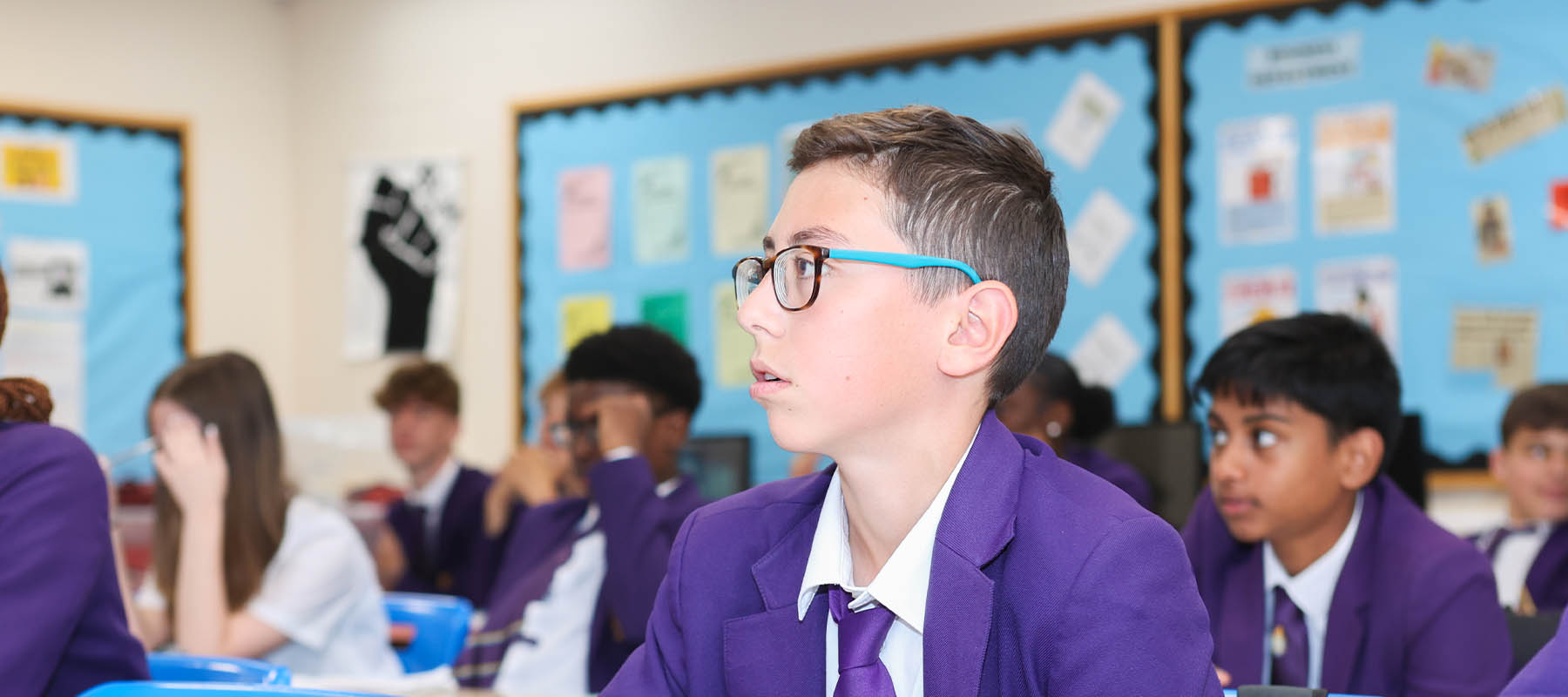History
Our aim is to develop inquisitive historians and a life-long love of learning for the subject of History.
We ensure this through a broad and ambitious History curriculum, rich in skills and knowledge, which immerses students in a range of cultures and engenders an enquiring and critical outlook on the world that can also be applied in other subjects and in their future endeavours. These skills are honed and developed progressively through the curriculum to create historians confident in communicating their views, both in writing and orally. Each topic is framed around a challenging historical question which is linked to a key historical concept. Lessons mirror this, with key questions forming the basis for each lesson enquiry. This will ensure students access and apply high level vocabulary with increasing rigour over their time in history classrooms.
Course Description
KS3 in the History department at Townsend takes place over the period of Y7 and Y8 and students have 4 History lessons a fortnight.
This is a carefully constructed course in line with National Curriculum expectations that enables students to have a baseline of historical skills and knowledge that builds upon KS2 learning and helps to form a bridge to future learning in History.
In year 7, students are introduced to key historical skills such as chronology, use of evidence and historical interpretation, that will give them the foundations of key techniques and ideas in History which are also continued through Y8. These ideas are there to be developed upon in KS4. These skills and key ideas are carefully planned into units which are regularly updated and adapted to the needs of the students.
Programme of Study
Year 7
- What is History?
- Norman Conquest of England
- Church and monarchy in the Middle Ages
- Islamic civilisations and the Crusades
- Religious changes under the Tudors
- English Civil War
Year 8
- Creation of the British Empire
- Britain’s involvement in the global slave trade
- Impact of revolutions c.1750-1900
- Changing warfare in the 20th century
- Significance of the Declaration of Human Rights (including Holocaust education)
- Social progress in Britain by 21stcentury
Assessment
Students will be set a baseline test at the start of the year to assess their knowledge and historical skills. There are regular retrieval knowledge tests to consolidate long term information. Students will sit a practice assessment in preparation for a formal assessment each half term. All assessments are designed to develop the skills required at GCSE level.
Home Learning
In year 7 and 8 students complete one extended home learning project at home each year. This project will be over the course of a half term. Students will be provided with clear instructions and success criteria and work will be checked during the course of the half term by their class teacher. Year 7 complete a project on Medieval Castles and Year 8 complete a project titled ‘Who do you think you are?’.
Where can History take you
The skills acquired through the study of History, at any level, are invaluable for an array of career paths. Those listed below show just a few which have a direct and indirect relation to the subject.
Further Study
GCSE History
Careers
Careers related directly to History:
- Heritage manager
- Historic buildings inspector or conservation officer
- Museum education officer
- Museum or gallery curator
- Museum or gallery exhibitions officer
- Teaching
Careers where the qualification would be useful:
- Editorial assistant
- Information officer
- Politician’s assistant
- Law
- Management consultancies
- Publishing companies
- Television and radio broadcasters.
How can parents support their child’s learning
- Parents can discuss with the students how they plan to manage their time for the home learning tasks.
- We strongly encourage students to gain background research from books rather than the internet as it is often age-inappropriate for students and the school’s Discovery Centre, local libraries and books at home would all be helpful to students deepening their knowledge and understanding of the topics studied.
- Visiting historical sites and encouraging discussion about the topics studied in class is also useful.
Useful Links
- TV Timeline – tv
- BBC education – BBC Education
- School History – co.uk
- History on the net – History On The Net
- History revision – JohnDClare History Revision
- Spartacus Educational – Spartacus Educational


